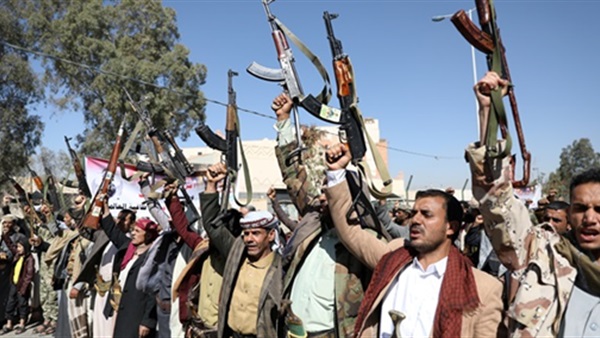Elements supporting Iranian goals: Houthis begin second phase of sectarian project

The Houthi militia began the second phase of its sectarian project in Yemen by replacing the entities and cadres opposed to it with elements from the pro-Iranian Lebanese Hezbollah and the Revolutionary Guards.
The director of the Human Rights Office in Sanaa, Fahmi al-Zubairi, said that the militia deliberately emptied the state institutions of their cadres and created parallel entities led by its members, and the armed wing, which was called the “People's Committees”, replaced the formations of the Yemeni army in its various branches.
Control of the army
The elements affiliated with the Lebanese Hezbollah and the Iranian Revolutionary Guards supervise the establishment and management of these parallel entities, as well as supervising workshops for the reassembly of smuggled drones, ballistic missiles, automatic rifles, light weapons, and explosives factories.
Press reports confirmed that Abdul-Malik al-Houthi, the militia’s leader, received the replacement plan from Iranian experts, during which the first step was started last September by distributing armed formations to military units, where the so-called Al-Hussein Brigade and Rapid Intervention Forces were replaced by the Republican Guards and the Special Forces. This formation now bears this capacity and is led by Abdul Khaliq al-Houthi, the brother of the militia leader who is on the international sanctions list.
Because of the refusal of the majority of Yemeni army personnel to participate in the fighting on the side of the militia, choosing instead to stay in their homes, and part of these forces standing on the side of late President Ali Abdullah Saleh, over the past eight years, the official military units and formations have remained mere structures, with numbers of members not exceeding a few hundred. For this reason, the Houthi militia has replaced members who left after its coup against legitimacy with its own armed elements.
Domination of country’s government sector
After the director of the office of the Houthi Governing Council, Ahmed Hamid, known as Abu Mahfouz, supervised the dismissal of about 60,000 civil servants, either under the pretext of interruption from work as a result of their movement to live in government-controlled areas for fear of arrest or under the pretext of referral to retirement. He is currently preparing to implement the broadest process of replacing sectarian elements in the various state institutions through the so-called “functional code of conduct” that requires those who remain in their jobs to believe in the right of the Houthis to rule, not express an opinion that contradicts the militia’s directions, commit to work without pay, and participate in the mobilization of fighters and in all sectarian activities.
Currently, according to sources, written pledges have begun to be taken from all employees, which will enable the Houthis to dismiss thousands of employees because they either refuse to make pledges or because they did not show commitment to the contents of the code, which was rejected and condemned by a large segment of Yemenis of various orientations.





